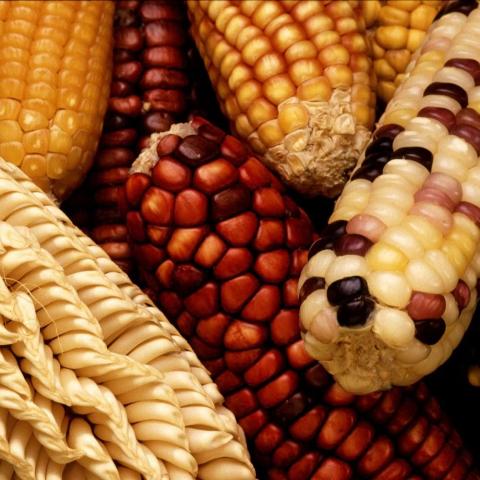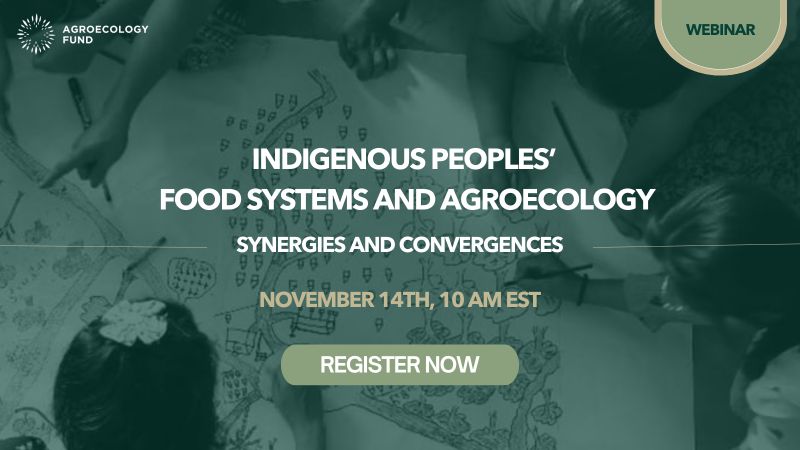Indigenous Peoples’ Food Systems and Agroecology

Organised by the Agroecology Fund. Translation will be available into French, Spanish and English.
The webinar on Indigenous Peoples’ Food Systems and Agroecology: Synergies and Convergences will explore the main features of the Indigenous peoples food systems, the synergies that exist between Indigenous peoples food systems and the agroecology approach, and how the Indigenous peoples’ struggles to defend their rights and the agroecology movement grow in strength together. Key topics, such as the spiritual dimension of Indigenous peoples' food systems, as well as the role of women in the management of biodiversity and food security, will also be addressed.
We will learn from our partners working with Indigenous peoples in Southeast Asia, Africa, and Central America about their processes of strengthening their food systems, as well as from funders accompanying their movements.
>> Find out more and register online
About the Agroecology Fund
The Agroecology Fund is a multi-donor fund that supports just and sustainable food systems. Such systems promote the wellbeing and human rights of small farmers, Indigenous Peoples, and their communities, replenish soil and water resources, and help mitigate climate change.
Using a unique participatory philanthropic model that relies on guidance from international advisors and long-term partners embedded in civil society networks, we link highly effective practitioners, scientists, and movement builders working across the globe with the necessary resources to help them achieve global food systems transformation.

Top photo by Keith Weller, USDA on Wikimedia: maize (Zea mays), also known as corn, is now a staple crop in many parts of the world. It was originally domesticated by the indigenous peoples of Southern Mexico several thousand years ago: unlike its wild ancestors, maize requires humans in order to propagate. It is the most important crop for the Mayan culture.
